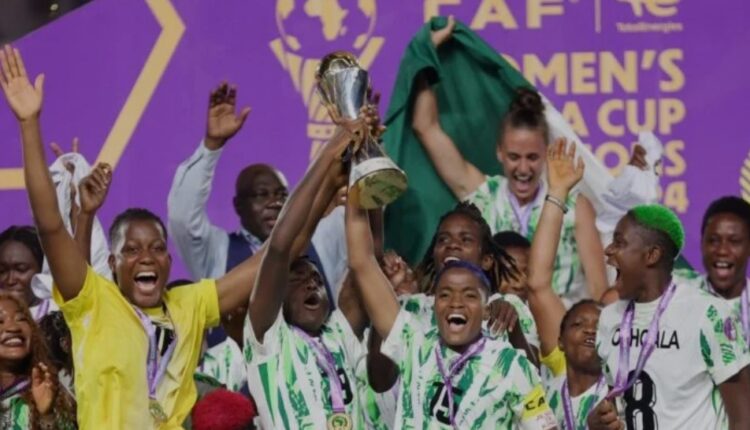Recent triumphs on the continental stage have reignited a powerful sense of national pride and sparked a crucial conversation about the future of Nigerian sports. In a remarkable display of dominance, the Super Falcons soared to their record-extending 10th Women’s Africa Cup of Nations title in July. This victory was swiftly followed by the D’Tigress claiming their seventh FIBA Women Afrobasket championship, cementing Nigeria status as a force in African basketball.

While these achievements are rightly celebrated, they also serve as a poignant reminder of the vast, untapped potential that lies within the nation. Sports analysts, administrators, and fans alike are now calling for a strategic shift—a move away from relying on sporadic success and toward building a robust system that nurtures champions from the ground up. This article explores the essential blueprint for sustainable grassroots sports development in Nigeria, arguing that the winning formula must be applied beyond football and basketball to unlock the full potential of the nation athletic talent.
The Current Landscape: A Tale of Two Victories
The success of the Super Falcons and D’Tigress is not accidental. It is the result of years of investment, both individual and institutional, and the sheer willpower of the athletes. However, these victories also highlight a significant imbalance. The focus and resources channeled into these top-tier teams are not mirrored across the broader sporting spectrum. This creates a scenario where Nigeria pockets of excellence overshadow a landscape where many other sports struggle for recognition and funding.
The conversation today is no longer just about celebrating wins; it is about replicating them systematically across multiple disciplines, from boxing and swimming to athletics and tennis.
The Foundation of Success: Understanding Grassroots Sports Development in Nigeria
At its core, grassroots sports development in Nigeria is about creating a foundational ecosystem where young talent can be identified, nurtured, and honed. It goes far beyond simply encouraging children to play. It is a comprehensive strategy that involves:
-
Talent Identification: Systematically scouting for potential athletes at a young age in schools and local communities.
-
Quality Coaching: Providing trained coaches who understand modern techniques, sports science, and youth psychology.
-
Modern Facilities: Building and maintaining safe, accessible sporting infrastructure across the country.
-
Regular Competition: Organizing local, regional, and national tournaments to provide athletes with competitive experience.
-
Athlete Welfare: Integrating education, nutrition, and mental health support into training programs.
Without this structured approach, the nation will continue to depend on lucky discoveries rather than a reliable pipeline of world-class athletes.
Expert Insights: A Unified Call for Systemic Change
Leading voices in Nigerian sports administration echo the urgent need for this foundational shift.
Dehinde Ogunbiyi, a official with the Lagos State Basketball Association, emphasizes that sustainable success is impossible without a solid base. “Grassroots sports development is more than just playing—it is about institution building. We need to train young athletes, construct facilities, and organize regular competitions. Without this, we are merely relying on chance, not building a lasting legacy.”
Echoing this sentiment, Dr. Rafiu Ladipo, a prominent boxing administrator, stresses the importance of equity and modern training. “We must invest equally across all sports. Our coaches need access to international best practices and modern training methodologies. No talent should be left behind because its sport is not considered ‘popular’.”
Sports analyst Raymond Nwabuda offers a critical perspective on the current imbalance. “The overwhelming focus on football is detrimental to the health of other sports. We need fair funding and inclusive policies that create a level playing field for all disciplines. A diversified sports culture will not only produce more champions but also contribute significantly to public health, job creation, and national unity.”
A Strategic Roadmap for Sustainable Grassroots Sports Development in Nigeria
To translate this vision into reality, a multi-faceted approach is essential. Here is a potential roadmap:
-
National Grassroots Sports Policy: The government, in partnership with private bodies, must establish a clear, long-term policy that mandates and funds sports programs in primary and secondary schools nationwide.
-
Public-Private Partnerships (PPPs): Corporate organizations should be incentivized to adopt sports and fund infrastructure projects, creating a sustainable model beyond government budgets.
-
Coach Education Programs: Investing in the continuous training and certification of coaches is crucial. This ensures that young athletes receive quality guidance from the start.
-
Revival of School Sports Festivals: Reinvigorating inter-school competitions at the local and state levels will provide a platform for talent discovery and foster a competitive spirit from a young age.
-
Community Sports Centers: Establishing well-equipped community sports centers can make athletic training accessible to every child, regardless of their socioeconomic background.
The Ripple Effect: Benefits Beyond the Podium
A national commitment to grassroots sports development in Nigeria would yield benefits far beyond medals and trophies.
-
Youth Empowerment: Sports teach discipline, teamwork, and resilience, channeling youthful energy into positive pursuits.
-
Talent Diversification: Nigeria could excel in a wider range of Olympic sports, enhancing its global standing.
-
Economic Growth: The sports industry can create jobs in coaching, management, hospitality, and infrastructure development.
-
National Health: A sports-loving culture contributes to a healthier populace, reducing public health costs.
Conclusion: From Momentary Pride to Lasting Legacy
Nigeria stands at a crossroads. The recent victories by the Super Falcons and D’Tigress have given the nation a glimpse of what is possible. With its immense population of vibrant youth, the country possesses the raw material to compete with the best in the world. The path forward is clear. By prioritizing grassroots sports development in Nigeria, by investing systematically, and by fostering a culture of inclusion and excellence, the nation can transform fleeting moments of pride into a enduring legacy of champions. The time to build from the ground up is now.


Comments are closed.